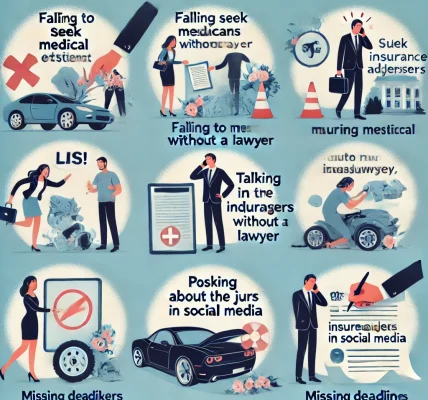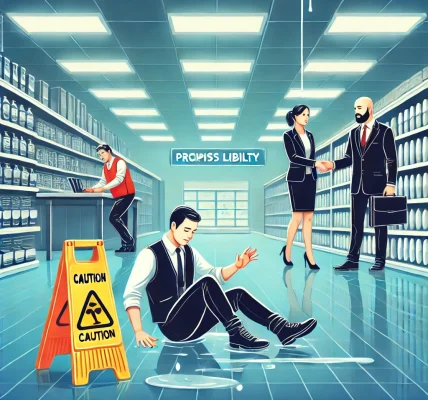Introduction
When pursuing a personal injury claim, the most crucial evidence to support your case is your medical records. These documents serve as concrete proof of your injuries, their severity, and the medical treatment required for recovery. Without strong medical documentation, your chances of securing fair compensation are significantly reduced.
In this blog, we will explore why medical records are vital in a personal injury case, how they influence settlement negotiations, and best practices for ensuring your medical documentation strengthens your claim.
1. The Role of Medical Records in a Personal Injury Case
Medical records bridge the gap between the injury and the legal claim. They provide essential proof that the injury was caused by the accident and document the extent of pain, suffering, and treatment. Here’s how medical records contribute to your case:
A. Establishing the Link Between the Accident and the Injury
Insurance companies and courts require clear causation—proving that the accident directly caused your injuries. Medical records with timely treatment notes, emergency room reports, and doctor’s evaluations provide this critical link.
B. Demonstrating the Severity of Injuries
The severity of injuries directly affects compensation. A well-documented medical report with X-rays, MRIs, and physician statements can prove whether the injury is temporary, chronic, or permanent, impacting the settlement value.
C. Supporting Claims for Pain and Suffering
Beyond physical injuries, many victims suffer emotional distress. Psychological evaluations, therapy records, and pain management notes can support claims for pain and suffering damages.
D. Strengthening Credibility and Legal Standing
Inconsistent or missing medical records can weaken a claim. A complete, detailed medical history increases credibility and ensures your claim is taken seriously by insurers and courts.
2. Key Medical Records Needed for a Personal Injury Case
To maximize compensation, you should gather and maintain the following medical documents:
- Emergency Room Reports – Immediate treatment records establish urgency and severity.
- Doctor’s Notes and Diagnosis – Outline the nature of the injury and prescribed treatment.
- Surgical and Hospital Records – Detail invasive procedures and hospital stays.
- Prescription Records – Show pain management and ongoing medical needs.
- Physical Therapy Reports – Indicate the extent of rehabilitation required.
- Psychological Evaluations – Support claims for emotional distress and PTSD.
- Medical Bills and Expenses – Demonstrate financial losses due to treatment.
3. How Medical Records Affect Settlement Negotiations
Insurance companies rely heavily on medical records to calculate compensation. The stronger the documentation, the higher the potential settlement.
A. Using Medical Evidence to Justify Settlement Amounts
A complete record of injuries, treatment, and recovery timeline allows your attorney to argue for a fair settlement. Without these records, insurance adjusters may downplay your claim.
B. Avoiding Claim Denials and Reductions
Incomplete or contradictory medical records can lead to a denied or reduced settlement. Insurance companies may argue that:
- The injuries were pre-existing.
- The treatment was unnecessary.
- The injuries are less severe than claimed.
C. Proving Long-Term or Permanent Damage
If your injury has resulted in long-term disability or chronic pain, medical records from specialists and long-term treatment plans will support higher compensation for future medical expenses and lost earnings.
4. Common Mistakes to Avoid in Medical Documentation
Many claimants unknowingly make mistakes that harm their personal injury case. Here are some pitfalls to avoid:
A. Delaying Medical Treatment
Waiting too long to seek medical attention weakens your claim. Insurance companies may argue that the injury was not serious or unrelated to the accident.
B. Failing to Follow Medical Advice
Not following prescribed treatments, skipping therapy sessions, or stopping medication prematurely can undermine your credibility and reduce your settlement.
C. Inconsistent Medical Records
Differences between medical records and injury claims (e.g., claiming a back injury but having no recorded back treatment) can damage your case.
D. Not Keeping Copies of Medical Bills and Reports
Always request copies of all medical reports, bills, and prescriptions. Missing documents can make proving your damages more difficult.
5. How a Personal Injury Attorney Can Help with Medical Records
Navigating medical records can be complex, but an experienced personal injury attorney can:
- Ensure proper documentation – Help request and compile all necessary medical records.
- Coordinate with medical experts – Obtain statements from doctors or specialists to strengthen the case.
- Challenge insurance tactics – Defend against attempts to discredit or downplay medical evidence.
- Calculate damages accurately – Use medical reports to estimate both current and future medical expenses.
6. Conclusion
Medical records are the backbone of any personal injury claim. They prove the cause, severity, and impact of injuries, directly influencing the compensation you receive. Keeping thorough, accurate medical documentation and working with a skilled attorney can maximize your claim’s success.
If you’ve suffered an injury due to someone else’s negligence, don’t underestimate the power of medical records. Seek immediate medical care, maintain detailed records, and consult a personal injury attorney to protect your rights and secure the compensation you deserve.




